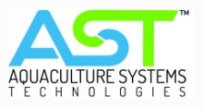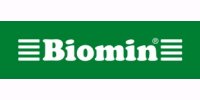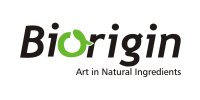October 2016 JWAS Editor's Choice Awards
Editor’s Choice Awards
Good, C. and J. Davidson. 2016. A review of factors influencing maturation of Atlantic salmon Salmo salar with focus on water recirculation aquaculture system environments. Journal of the World Aquaculture Society 47(4):605-632.
Early maturation of Atlantic salmon, Salmo salar, has resulted in economic losses particularly in land-based RAS production systems that constitute an emerging production system for commercial production of Atlantic salmon. This paper reviews the literature related to factors that have been associated with early maturation of salmonids. It also summarizes research that has focused specifically on the effects of precocious maturation of Atlantic salmon on growth and production in land-based RAS systems.
Guo, Y., L. Yan, and J. Cai. 2016. Effects of Bdellovibrio and like organisms on survival and growth performance of juvenile turbot, Scophthalmus maximus. Journal of the World Aquaculture Society 47(4):633-645.
Bdellovibrio, a Gram-negative predatory bacteria, have been suggested for use as a biocontrol agent to possibly substitute for antibiotic use or as a type of probiotic. Guo et al. (2016) examined the effect of Bdellovibrio on growth and survival of turbot, Scophthalmus maximus, in a static water tank rearing system. Survival and growth of juvenile turbot were significantly greater with the Bdellovibrio treatment than in the control. Results show that there may be potential for use of Bdellovibrio as a probiotic in coldwater fish aquaculture production.
Haque, A.B.M. and M. M. Dey. 2016. Impact of the community-based fish culture system on expenditure and inequality: evidence from Bangladesh. Journal of the World Aquaculture Society 47(4):646-657.
Global leaders have adopted international goals proposed by the United Nations to reduce income inequality and poverty globally. Fish consumption was identified as a priority to improve food and nutritional security in Bangladesh. Haque and Dey (2016) developed an empirical analysis of the effect of community-based fish culture systems on household expenditures and inequality in Bangladesh. Community-based fish culture systems were found to have an equalizing effect on food, clothing, and health care expenditures.
Viriyatum, R. and C.E. Boyd. 2016. Slow-release coated copper sulfate as an algicide for aquaculture. Journal of the World Aquaculture Society 47(4):667-675.
Copper sulfate is frequently used as an algicide in catfish ponds to reduce cyanobacteria and allow fish flavor to improve, but re-treatment is often necessary. Viriyatum and Boyd (2016) evaluated the effectiveness of a coated copper sulfate product that provided a controlled release of copper over time. The coated copper sulfate product provided a similar level of phytoplankton control as weekly treatments of copper sulfate crystals over a 4-month period. No negative effects on catfish survival, production, or feed conversion were found.
You can review these award winning articles and the entire October 2016 issue here













